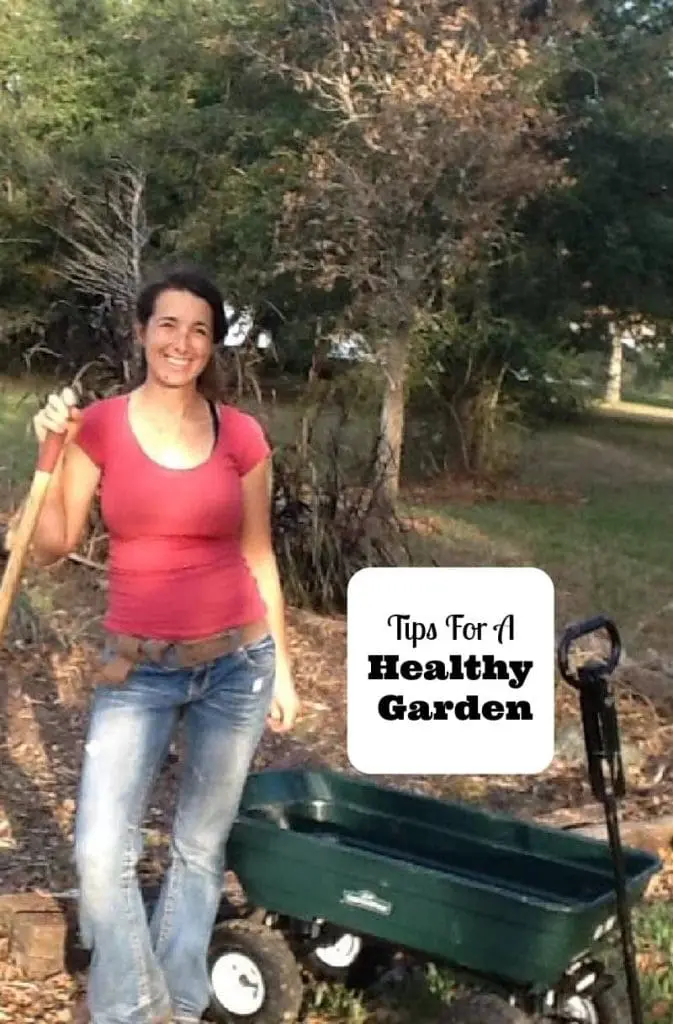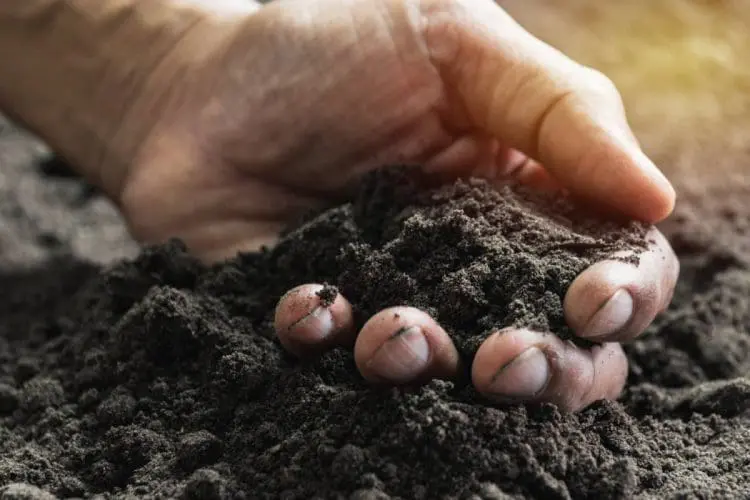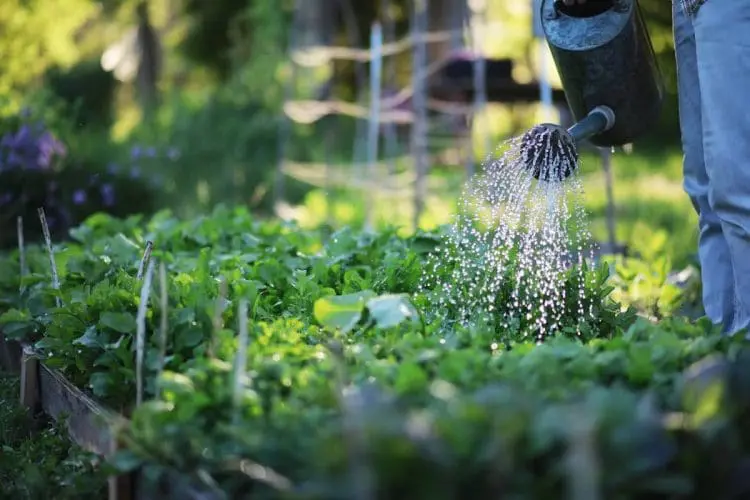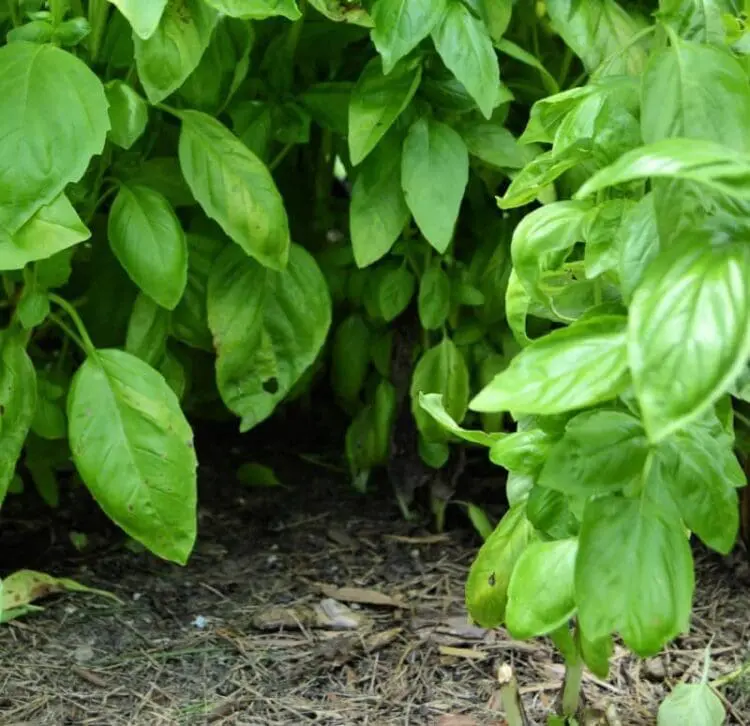A garden is a significant highlight of the outside of a house and even influences its selling value. Gardens are ideal as they add aesthetics to a home, but remember that a well-cared-for garden nursery doesn’t just appear out of thin air. Your plants must be well cared for in order to grow, bloom, and fruit at their peak performance. Here are five simple tips for a healthy garden. These tips are important for landscaped beds as well as vegetable gardens.
Unfortunately, healthy gardens are not a given. Many factors can effect the health of your plants. Gardens aren’t safe from pests and other similar problems. This can happen when you have a diseased plant, a microorganism (like a parasite or bacterium) or infestation, or due to natural circumstances (like humidity or drought) that advance the sickness.
If your plants are unhealthy and suffering, the first thing to look at is the level of water and sun they are receiving and the amount that is actually recommended for that type of plant. Then check for bug infestations. Finally the you may have diseased plants or poor soil. Typically, the most affected part of the soil is the topsoil. The topsoil is a layer of organic matter that propels the circulation of nutrients in the soil. Upon discovering the disease after submitting your plants for a thorough examination, most people would remove soil from the garden altogether and install a layer of fresh, topsoil with the help of experts like Missouri Organic.

5 Ways To Keep Your Garden Healthy
April 15th is the last frost date in my area (USDA Zone 5) so it almost time to put your plants out! Prevention of problems is always easier than fixing problems. Before the condition of your garden worsens, here are five actions that will help keep your garden healthy:
Maintain The Soil
Soil is a vital part of a garden. You can’t expect to have a beautiful garden if you used the wrong or poor type of soil. Generally, you should have loamy, porous, fertile soil with the right pH level. Thus, you must prepare your garden soil for a healthy and solid garden. Then, introduce the organic matter to the soil if you want to increase soil nutrients and improve soil structure and fertility. Ensure your soil is rich in nutrients and well-draining.
You should turn the soil once a month to keep it light and porous and for the plants to grow well. Be that as it may, assuming you have clay soil, you must turn it two times or more in a month to keep it from disintegrating and solidifying to avoid water logging. Moreover, clay soil might require some natural manure to keep it at its pinnacle and avoid worsening its condition.

Ensure Proper Watering
Your garden needs water to flourish and survive. However, excess moisture can establish a reasonable ground for illnesses to develop. Plant microorganisms depend on water to replicate. Hence, you can keep plant illnesses from attacking your nursery by performing watering strategies that limit dampness levels.
How do you minimize dampness levels in the soil? You can do this by utilizing drip irrigation and soaker hoses. On the off chance that you are using a watering can, hold the leaves on to water the roots directly. Leaf issues can deteriorate when leaves are wet. It’s ideal to abstain from above sprinkling to keep leaves from getting covered in water.
If you should pick this watering technique, pick a time when the leaves can dry right away and the roots can have more than adequate opportunities to retain the water. Additionally, you limit the risk of fungal infection, which can make the roots decay and suffocate.

Plant Disease-Resistant Crops
Choose plants that are well-suited to your climate and soil type. Consider native plants, as they are adapted to the local conditions and require less maintenance. These plants have a protective mechanism against the attack of bugs and infections. A few plants can endure a pest infestation by developing another root or shoot. Others produce synthetics that avoid the possibility of being consumed by pests. For example, some tomato varieties are impervious to ‘VFN,’ implying they can fend off harm from organisms (like verticillium and fusarium) and nematodes.
Garden creators and tree farm staff can help you recognize disease-resistant plants. You can likewise refer to cultivating books that might have a rundown of plants that have protection from explicit bugs and sicknesses. Native plants are usually far more disease-resistant than common varieties sold at large retailers.
Use Manure
Manure is organic matter that is used as fertilizer. It best used by mixing it in with compost. Not all materials in a manure heap break down at a similar rate. A few materials might have degraded adequately to be placed in the nursery, while others have not. Thorough composting creates high temperatures for expanded periods, which kill any microbes in the material.
Infected plants that have not gone through proper composting will introduce possible illnesses into your nursery. So, if by bad luck you aren’t aware of the state of your manure heap, try not to utilize yard leftovers as mulch under delicate plants and introduce infected plant wastes to your pile. If you are using fresh manure from a farm, it is best to mix manure into the soil in the fall to give it time to assimilate into the soil prior to spring planting.
You can buy bags of manure that are ready to be used in the garden. These are great for enriching your soil and giving your plants optimum nutrients to grow. Applying manure at the right time is also critical. As Iowa State points out, manure should be applied “at least 120 days before harvesting any vegetables that come into contact with soil and 90 days for other vegetables that do not contact the soil.”

Perform Regular Pest Control
Pests can cause more harm to plants than what is apparent to the eye. As a bug eats off a plant, it can initiate what becomes an entrance for infections and microbes. Or they just might eat up way too many leaves or make holes in your produce itself. A few bugs are carriers of diseases and send illnesses starting with one plant and then onto the next, like aphids.
If left neglected, bug infestations cause the plant to die. Therefore, ensure you spray using suitable natural pesticides to save you from losing your plants and soil. Consider companion planting in your vegetable garden which is the planting certain species together. These particular combinations can help repel pests, attract beneficial insects, and improve overall plant health.
Conclusion
Creating a healthy garden involves regular monitoring. Keep an eye on your plants for signs of stress, pests, or diseases, and take action as needed to address any issues. Following the ways discussed in this article, it is hoped that you now know how to maintain a healthy garden. Go with organic fertilizer and ensure you use the appropriate one and apply the right amount. Additionally, always keep garden clean and clear of rotting or moldy detritus to avoid diseases. Furthermore, regular weeding is also necessary and ensure that plants are well spaced to provide a solid ground for their growth. What are your best tips for a healthy garden?
Related Posts:

Ada Miller says
These methods are very useful, thanks for sharing. I will put these tips to use in my community garden since I live in an urban setting. I am excited to grow romaine lettuce and grape tomatoes this year.
Mukles Shaikh says
Very helpful information. Your tips are well written and complete, hope to see more related to gardening! Thanks for sharing with us. I am growing cherry tomatoes in my small space garden.
Sargodha Jobs says
Gardening is an excellent way to enhance the beauty of nature. This helps to keep the environment healthy while also providing a peaceful environment. I apply straw in a layer around the base of my plants to prevent weed growth. About a 3 inch layer works to carry me through the gardening season. Thanks for sharing the informative gardening post.
Ashley says
We’re making a real effort with our garden this year after years of abandonment! These tips were really useful, thank you for sharing.
Monalisa Nanda says
Hi,
These gardening methods are excellent. Thanks for sharing tips for keeping gardens healthy and thriving.
Joss Butler says
Hi Scarlet,
For a healthy garden, my best tips would be to prioritize soil health by using nutrient-rich soil and regular composting, ensure proper watering techniques to avoid over-watering and fungal issues, and implement natural pest control methods such as companion planting.
Dr. Amyn Rajani says
Your tip about proper watering techniques is crucial, especially during hot summer months. Overwatering can be just as detrimental to plants as under-watering. It varies based on factors like soil type and weather conditions.